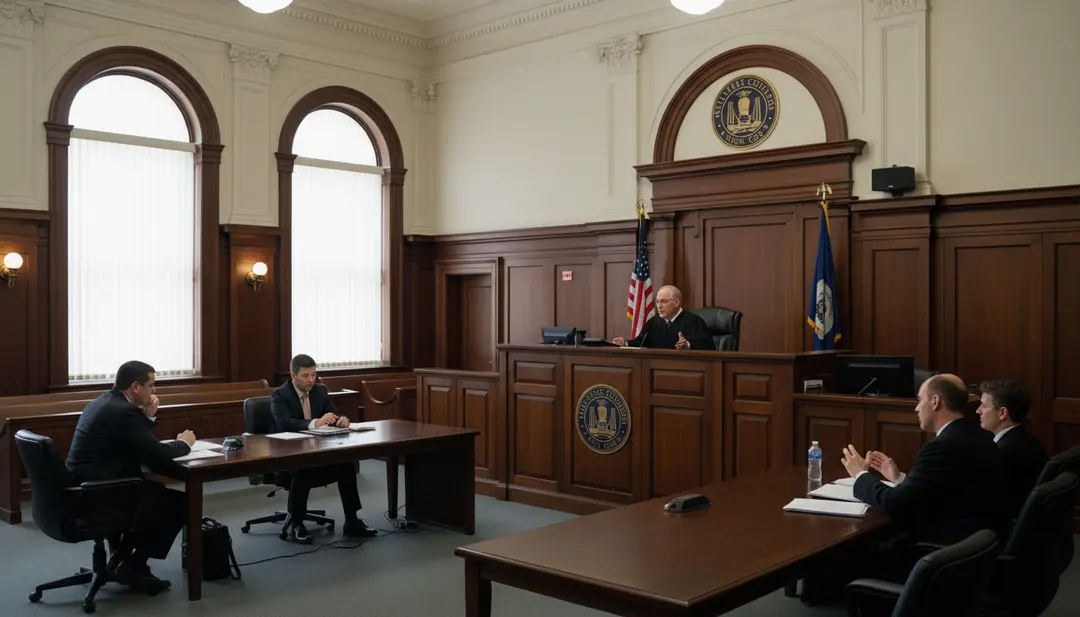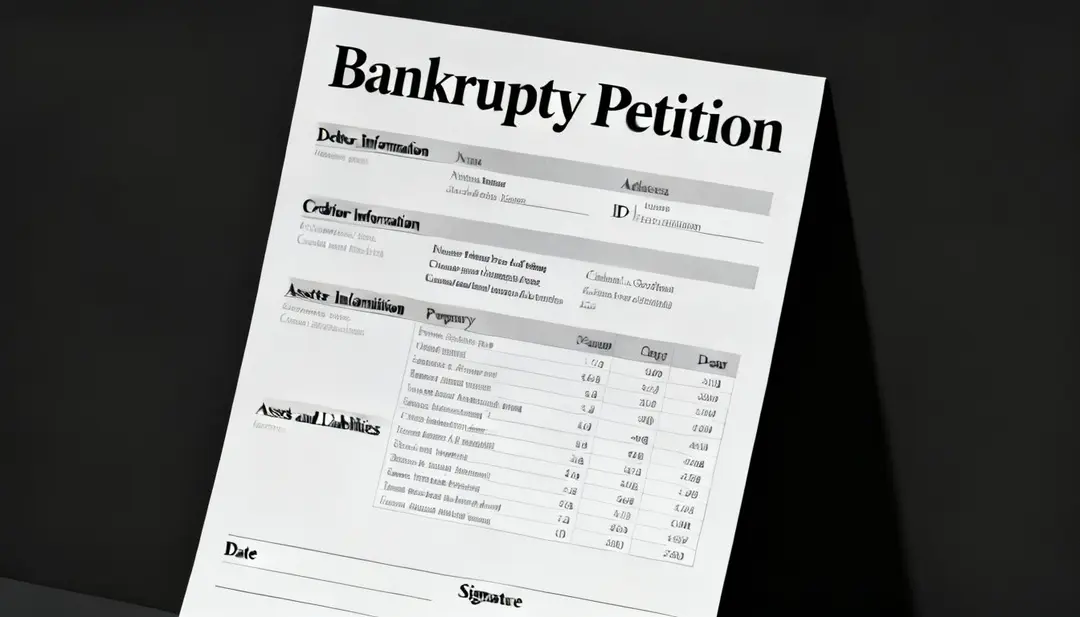Attorneys specializing in HOA law are instrumental in ensuring that the association complies with these complex and often overlapping regulations. Their expertise helps in:
- Interpreting and Applying Governing Documents: Attorneys analyze and interpret HOA governing documents to ensure that they align with current laws. They provide advice on how to implement these documents in daily operations.
- Staying Updated with Legal Changes: Laws governing HOAs are dynamic. Attorneys stay abreast of legal updates, ensuring that the association remains compliant and avoids penalties.
- Drafting and Amending Documents: They assist in drafting new governing documents or amending existing ones to incorporate legal changes or to address the evolving needs of the community.
Preventing Lawsuits Through Proper Legal Guidance
Lawsuits can be costly and time-consuming, draining an HOA's resources. A skilled attorney provides preventative legal guidance to minimize the risk of litigation. Some of the ways they contribute include:
- Conflict Resolution: HOA dispute resolution: Attorneys provide guidance and support to the board in managing disputes among homeowners.
- Legal Advice on Board Decisions: They review board decisions and actions to ensure they comply with legal requirements, reducing the likelihood of legal challenges.
- Enforcement of Governing Documents: They guide the board on how to enforce rules consistently and fairly, promoting a harmonious community and mitigating disputes.
Proper legal guidance can save the association from the financial and reputational damage of lawsuits, fostering a stable and peaceful community environment.
The Scope of Legal Assistance for HOAs
Attorneys provide various types of legal assistance beyond compliance and litigation prevention. Their services can be categorized into several key areas:
1. Governance: Advising on best practices for board governance, including election procedures and meeting protocols.
2. Finance and Collections: Assisting with delinquent assessment collections, drafting payment plans, and ensuring compliance with financial laws.
3. Contract Review and Negotiation: Reviewing and negotiating contracts with vendors, ensuring favorable terms that protect the HOA's interests.
With such a broad scope, legal expertise plays an essential role in the overall management and operation of an HOA. As your HOA navigates the complexities of legal compliance and conflict resolution, the necessity of specialized legal assistance becomes undeniable. Understanding the multifaceted role of an HOA attorney can help your board make informed decisions, safeguarding both the association and its members.
Identifying Your Association's Unique Legal Needs
The process of pinpointing your HOA's unique legal requirements might seem daunting, but it is crucial for ensuring the proper governance and smooth operation of your community. An in-depth understanding of these needs helps in procuring the right legal support, thereby safeguarding your association against potential legal pitfalls.
Assessing Your HOA's Specific Legal Requirements
Every homeowner's association (HOA) is distinctive, with its own set of governing documents, bylaws, and unique circumstances. The first step in identifying your HOA's legal needs involves a comprehensive evaluation of these governing documents. This includes:
1. Reviewing Bylaws and Covenants: These documents outline the rules and regulations that govern the community. They typically cover aspects like maintenance responsibilities, architectural guidelines, and member voting procedures.
2. State and Local Laws: These laws vary widely and can impact everything from property management practices to dispute resolution processes. It’s essential to understand how these laws interact with your HOA's governing documents.
3. Community Size and Demographics: Larger communities or those with particular demographic characteristics might face specific challenges.
Common Legal Issues Faced by HOAs
Understanding common legal issues that HOAs encounter can provide insight into the types of legal support that might be necessary:
- Dispute Resolution: Conflicts between board members, residents, or between the HOA and residents, are common. Legal assistance ensures these disputes are resolved fairly and in accordance with the law.
- Assessment Collections: HOAs frequently face issues with collecting assessments from members. Legal guidance can help establish fair and enforceable collection policies.
- Contract Negotiations: Whether it’s a service contract for landscaping or a major construction project, negotiating contracts requires a keen understanding of legal implications to avoid future disputes.
- Maintenance and Repairs: Legal issues often arise from responsibilities related to maintenance and repairs, necessitating clear policies and procedures.
- Compliance with Laws and Regulations: Staying compliant with evolving local, state, and federal regulations is a constant challenge for HOAs. This might involve health and safety regulations, environmental laws, or fair housing rules.
Determining the Level of Legal Support Needed
Once the specific legal requirements and common issues are identified, the next step is determining the extent of legal support needed. This can vary widely based on the complexity of your HOA’s operations and governance structure.
- Full-Time Legal Counsel: Larger HOAs might benefit from having legal counsel on retainer or as needed, rather than requiring full-time legal counsel, ensuring continuous and immediate legal support.
- Retainer-Based Services: HOA retainer-based legal services: Retainer-based services are used by some HOAs. This provides a balance between cost and availability.
Understanding and defining these needs clearly not only helps in finding the right attorney but also ensures that the legal partnership is both effective and economical. Ensuring your HOA is adequately supported legally can prevent minor issues from escalating into costly and time-consuming disputes.
Once you have a clear picture of your HOA's legal needs, the next logical step is to seek professionals who can meet these requirements efficiently. It is essential to keep your association's unique requirements at the forefront when embarking on this quest for legal expertise.
Qualities to Look for in an HOA Attorney
Choosing the right attorney for your Homeowners Association (HOA) is paramount to ensuring effective legal guidance and compliance. Let's delve into the essential qualities an HOA attorney should possess to meet the unique needs of your association.
Specialization in Community Association Law
An attorney specializing in community association law offers a focused skill set that general practitioners may lack. Community association law encompasses a variety of elements unique to HOAs, such as interpreting governing documents, managing compliance issues, and handling member disputes. Attorneys with this specialization understand the complex legal landscape HOAs navigate, including state-specific laws and regulations. This expertise ensures your HOA remains in compliance and can effectively address any legal challenges.
Experience with Local and State Regulations
Local and state regulations significantly impact HOA operations. An attorney well-versed in these regulations can provide invaluable insights and advice. These attorneys will be familiar with state statutes affecting HOAs, such as property law, tax implications, and fair housing regulations. In addition, they understand local ordinances that may impact your community, such as zoning laws or noise restrictions.
Engaging an attorney with this experience ensures your HOA not only complies with all relevant laws but also can anticipate and respond to regulatory changes. This proactive approach helps keep your association ahead of potential legal issues.
Communication Skills and Availability
Effective communication between the HOA board, members, and the attorney is crucial for seamless operations. An HOA attorney needs to clearly and concisely convey complex legal terms and implications to laypeople. Their ability to explain legalities in understandable language helps the board make informed decisions.
Availability is another critical factor. The attorney should be accessible for regular consultations and urgent matters. It’s beneficial to have an attorney who can be present at board meetings, either in person or virtually, to provide real-time legal counsel. Reliable communication and prompt responses build trust and ensure your HOA receives timely legal guidance.
Selecting an attorney with the right qualifications is essential for the smooth operation of your HOA. Specialization in community association law, experience with local and state regulations, and strong communication skills are all pivotal qualities to look for. While the process may seem daunting, focusing on these attributes will help you find an attorney who can adequately support your association's unique needs, ensuring compliance and mitigating legal risks.
By emphasizing these key qualities, your HOA can navigate legal complexities with greater confidence and efficiency.
Finding Potential HOA Attorneys
Finding an attorney well-versed in HOA law is an essential step in ensuring the effective governance and legal compliance of your association. This involves a thorough and strategic approach. Here, we'll cover three principal methods: researching local law firms, seeking recommendations, and utilizing professional organizations for referrals.
Researching Local Law Firms with HOA Expertise
The first step in identifying potential attorneys is to perform diligent research on local law firms specializing in community association law. These firms possess unique insights and experience that are imperative for handling the complex legal needs of HOAs.
- Start with Online Research: Look for law firms in your area that highlight their expertise in HOA law on their websites. Pay attention to their case studies, client testimonials, and any published articles or guides related to HOA management.
- Review Online Directories: Utilize legal directories such as Martindale-Hubbell or Avvo, which provide ratings and reviews, helping you gauge the experience and reputation of firms specializing in HOA law.
Seeking Recommendations from Other Associations or Property Managers
These entities often have first-hand experience with local attorneys and can provide valuable insights into their performance and reliability.
- Network with Neighboring HOAs: Reach out to board members of nearby associations and inquire about their legal counsel. Ask specific questions about the attorney’s competence, responsiveness, and overall satisfaction with their services.
- Consult Property Management Companies: Property managers work closely with HOAs and often have a list of recommended attorneys. Their guidance can be particularly beneficial because they understand the unique challenges and legal intricacies faced by HOAs.
Utilizing Professional Organizations for Referrals
These organizations often maintain directories of legal professionals who specialize in HOA law and adhere to the highest standards in their practice.
- Community Associations Institute (CAI): The CAI offers a robust directory of professionals, including attorneys who specialize in community association law. They also provide credentials indicating the attorney's level of expertise and involvement in the industry.
- Arizona Association of Community Managers (AACM): Similarly, the AACM maintains resources for associations looking for legal advisors who possess the specific skill set required for effective HOA governance.
By leveraging these methods, you can compile a list of potential attorneys who not only fit your HOA’s unique needs but also come with strong recommendations and proven expertise in the field. This foundational groundwork ensures that the next steps—evaluating and interviewing prospective attorneys—are conducted with a pool of well-qualified candidates.
After identifying a selection of potential attorneys, the next phase involves rigorous evaluation and interviews to ensure they are the right fit for your association's unique legal requirements.
Evaluating and Interviewing Prospective Attorneys
Choosing the right attorney for your Homeowners Association (HOA) is a significant decision that impacts governance, legal compliance, and community harmony. Once you have a shortlist of potential attorneys with the requisite expertise and qualities, it's crucial to evaluate and interview them carefully. This chapter details the steps involved in this process.
Preparing a List of Questions Relevant to Your HOA's Needs
Before initiating interviews, prepare a set of questions tailored to your HOA’s unique legal needs. This list will ensure that the discussions remain focused and productive.
Here are some critical questions to consider:
Experience and Specialization:
- How long have you practiced community association law?
- Can you provide examples of similar associations you have worked with?
Knowledge of Local and State Regulations:
- Are you familiar with the specific state and local regulations governing HOAs in our area?
- How do you stay updated with changes in HOA laws and regulations?
Approach to Resolving Legal Issues:
- What is your strategy for preventing and resolving common legal issues in HOAs?
- Can you offer examples of how you have helped associations avoid lawsuits?
Fee Structure:
- What is your typical fee structure for HOA clients?
- Are there different billing options available (e.g., hourly, flat fee, retainer)?
- Can you provide an estimate of potential costs based on our current needs?
Availability and Communication:
- How do you prefer to communicate with your clients (e.g., email, phone, in-person meetings)?
- What is your availability for urgent matters?
- Do you offer regular updates and reports on ongoing legal matters?
Assessing the Attorney's Experience with Similar Associations
During the interview, delve deeper into the attorney's experience with associations similar to yours. This evaluation will provide insights into their capability to handle your specific challenges.
Case Studies and Success Stories:
- Ask the attorney to share case studies or success stories. For example, how they managed a significant dispute or streamlined compliance with new regulations.
- Inquire about their role in these cases and the outcomes achieved.
Community Involvement:
- Determine if the attorney is actively involved in the community association industry through participation in relevant organizations or speaking at industry events.
- Such involvement often indicates ongoing education and a commitment to understanding the evolving needs of HOAs.
Discussing Fee Structures and Availability
Understanding the financial and logistical aspects of hiring an attorney is essential for budget planning and ensuring effective communication.
Transparent Pricing:
- Insist on clarity regarding billing practices. Are expenses like court fees and expert witness fees included or billed separately?
- Look for attorneys who provide transparent, detailed invoices and are willing to discuss unexpected costs openly.
Retainer Arrangements:
- Retainer arrangements: Halk, Oetinger, and Brown offer flat rate general counsel services for ongoing legal needs,
- Ensure the terms align with your budget and meet the association's expectations.
Responsive Communication:
- Assess how promptly and effectively the attorney responds to inquiries during the interview process.
- Reliable communication is critical, especially for urgent legal matters that may arise unexpectedly.
Evaluating and interviewing prospective attorneys is a meticulous but vital step in securing appropriate legal representation for your HOA. By asking the right questions, assessing their experience, and having transparent discussions about fees and availability, you set the stage for a positive and productive relationship with your chosen legal counsel.
Transitioning forward, focusing on the final decision criteria will help cement a partnership that not only meets your existing needs but also propels your HOA towards a legally compliant and harmonious future.
Making the Final Decision
Comparing Potential Attorneys Based on Expertise, Cost, and Fit
Once you have narrowed down your list of potential HOA attorneys through careful evaluation and interviews, it’s time to make the final decision. The selection process should go beyond simply choosing the best resume. Consider several key factors to ensure you’re making an informed and holistic decision.
Expertise: The attorney’s specialization in community association law is critical. They should demonstrate a deep understanding of HOA-specific legal matters, including knowledge of local and state regulations. Their expertise should align closely with the unique legal needs identified in your HOA, from governing document compliance to complex dispute resolution. Scrutinize their track record with other HOAs similar in size and complexity to yours.
Cost: Assess each attorney’s fee structure carefully. Legal services can be expensive, and it’s crucial to balance cost with the level of service provided. Compare flat fees, hourly rates, retainer agreements, and any additional costs that might arise. Transparency in pricing is essential to avoid unexpected expenses that could strain your HOA's budget. Request detailed fee estimates based on your HOA’s anticipated legal needs to make an accurate comparison.
Fit: An effective working relationship hinges on mutual respect and clear communication. During the interview, pay attention to how well the attorney listens to and addresses your concerns, their responsiveness, and their ability to explain complex legal issues in a way that’s easy to understand. The right fit ensures productive interactions and effective resolutions.
Considering the Long-Term Relationship Potential
Choosing an HOA attorney is not just about addressing immediate legal needs but also about fostering a long-term relationship. Consistent and reliable legal guidance is invaluable as your association navigates changes and growth. Look for an attorney who shows a genuine interest in your community and demonstrates a commitment to ongoing support. Factors such as their willingness to provide educational resources, attend board meetings, and be available for consultations are indicative of a strong long-term partnership.
Consider also their ability to adapt to future challenges and changes within your HOA. An attorney who stays updated on legal trends and anticipates potential issues can help your association stay ahead of legal risks.
Finalizing the Agreement and Onboarding Process
Once you have made your choice, the next step is finalizing the agreement. This involves drafting and signing a contract that clearly outlines the scope of work, fee structure, terms of engagement, and expectations from both parties. Ensure all aspects discussed during the interview and evaluation stages are included in the agreement to avoid any ambiguity.
Provide them with comprehensive information about your HOA, including governing documents, recent financial statements, minutes from previous board meetings, and any ongoing or anticipated legal matters. Establish communication protocols, such as designated points of contact within the board and preferred communication methods, to streamline interactions.
By carefully comparing potential attorneys, considering long-term needs, and meticulously finalizing the agreement, your HOA can build a strong foundation for effective legal guidance. This deliberate approach ensures that the attorney not only meets your current needs but is also poised to support your association’s future aspirations and stability.

















